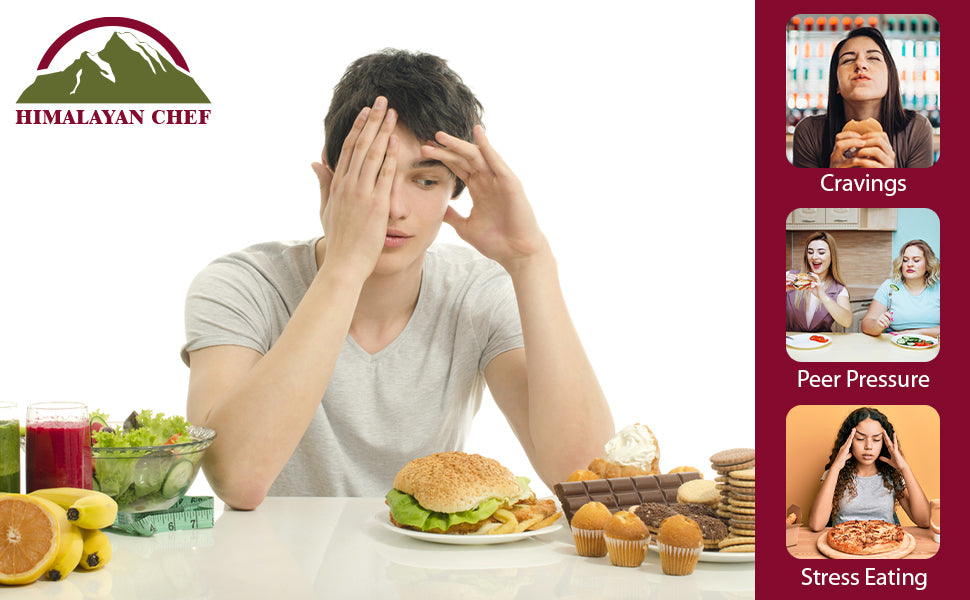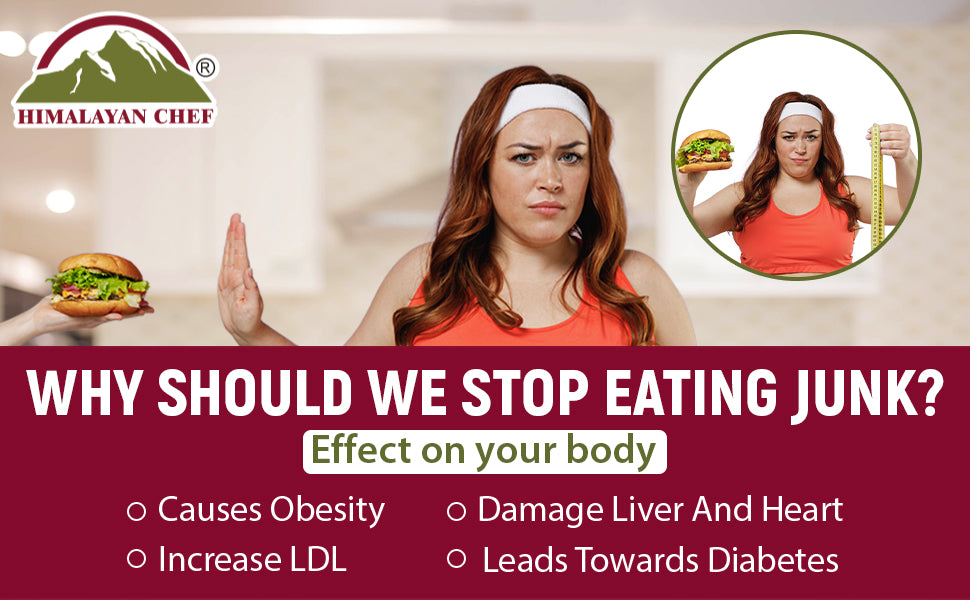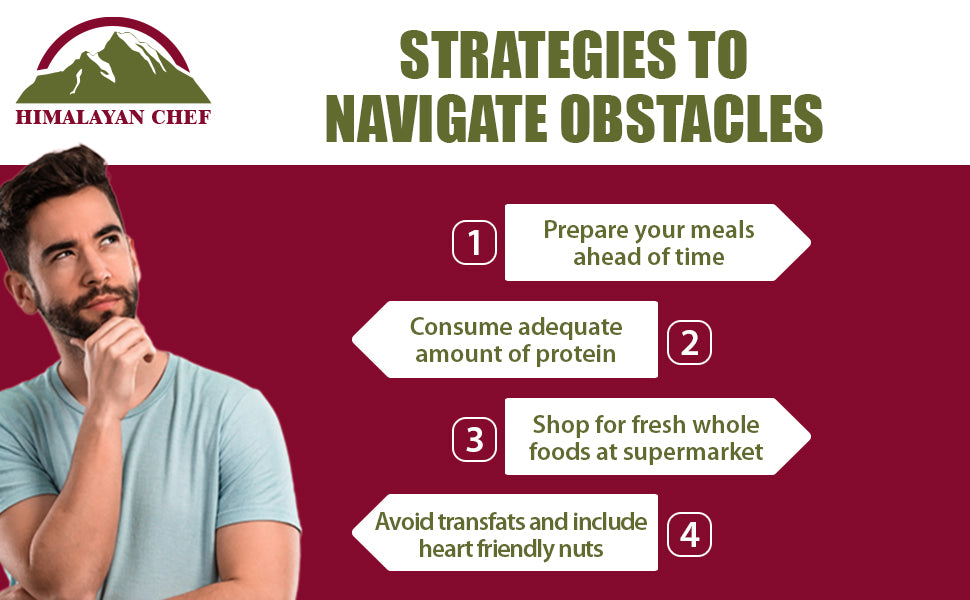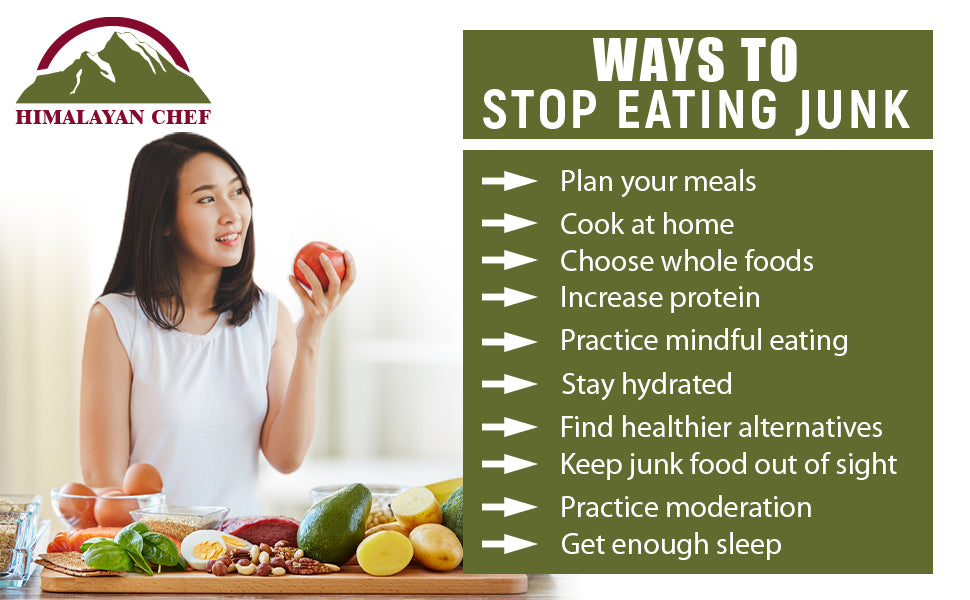How To Avoid Junk Food?

In today's fast-paced world, it's easy to get caught up in the tantalizing appeal of junk food. But let's not forget that we have the power to break free from the cycle of unhealthy eating habits. By making positive changes, we can transform our lives and become the best version of ourselves. People have to experience a moment of awakening that their relationship with food is negatively affecting their well-being. However, this realization is the first step towards a positive change. For some, it might be a medical diagnosis that prompts them to act, while for others, it could be a gradual recognition of feeling sluggish and lacking energy. Whatever the reason, this pivotal moment marks the beginning of a constructive and empowering journey toward reclaiming one's health and vitality.
Moreover, to effectively combat a problem, it is important to understand its tactics. This is true for addiction to junk food as well. The issue goes beyond just willpower; there are actual physiological and psychological factors at play. Junk food is loaded with high levels of sugar, fat, and salt, which trigger the brain's reward system and lead to cravings and compulsive eating behaviors. On top of that, food manufacturers use clever marketing strategies that capitalize on our vulnerabilities, making it even harder to resist the appeal of these highly processed, hyper-palatable foods.

Top 3 Most Intriguing Challenges To Overcome Junk Food Addiction
Of course, the journey to overcoming junk food addiction is not without its challenges. Let's know about this:
• Cravings
• Social pressures
• Emotional triggers
They all pose a threat to our progress. Junk food cravings can be intense and overwhelming, often leading to impulsive eating behaviors. These cravings are often triggered by environmental cues, stress, emotions, or even physiological factors like hunger or fatigue. Social situations can also pose challenges, as friends, family, and coworkers may not understand or support your commitment to healthier eating habits. As well as peer pressure to indulge in junk food can be difficult to resist, especially in social gatherings or at events centered around food. Moreover, many of us turn to food for comfort or as a coping mechanism during times of stress, sadness, or boredom.

Why Should We Stop Eating Junk Food?
There are many side effects of junk food. Junk food is packed with empty calories, unhealthy fats, and excess sugar which has a lot of disadvantages and thus can lead to a variety of health problems, such as:
1. Junk food can disrupt digestion and negatively impact gut health due to unhealthy fats, artificial additives, and lack of dietary fiber and probiotics.
2. Junk food is stripped of essential nutrients and can lead to deficiencies, weakening the immune system and hindering overall health.
3. Unhealthy eating patterns can cause anxiety and stress due to high levels of saturated and trans fats and refined carbohydrates.
4. Eating large amounts of junk food can trigger inflammation, increasing the risk of heart disease and stroke.
5. Certain ingredients in junk food can act as carcinogens, indirectly contributing to an increased risk of cancer.
6. A high intake of sugar and fat can disrupt the hypothalamus, leading to overeating and weight gain.
7. Junk food can contribute to skin problems due to high oil content and can trigger serious skin issues like acne, blackheads, whiteheads, wrinkles, and oily skin.
8. Junk food is calorie-dense and contains unhealthy fats and added sugars, leading to weight gain and an increased risk of type 2 diabetes.
9. Junk food's high saturated fat content can impact fertility.
10. Consuming junk food regularly can lead to chronic fatigue, lowering energy levels, and hindering productivity.

What Are The Strategies For Navigating Obstacles?
With resilience, determination, and support from others, you can overcome challenges and progress towards healthier eating habits and greater well-being. There are following strategies for navigating obstacles to avoid junk food.
1. Distraction Techniques:
• When cravings strike, distract yourself with a different activity or hobby to shift your focus away from food.
• Engage in physical activity, such as going for a walk or practicing yoga, to help reduce cravings and improve mood.
2. Mindfulness Practices:
• Practice mindfulness techniques, such as deep breathing or meditation, to become more aware of your thoughts and cravings without judgment.
• Mindful eating involves paying attention to the sensory experience of eating, including taste, texture, and smell, which can help reduce overeating and promote healthy food choices.
3. Seeking Support:
• Surround yourself with supportive friends and family members who understand and respect your commitment to healthy eating habits.
• Join a support group or online community of individuals who are also on a journey to overcome junk food addiction, where you can share experiences, tips, and encouragement.
4. Developing Coping Mechanisms:
• Identify and address the underlying emotions or triggers that lead to emotional eating.
• Instead of turning to food for comfort, explore alternative coping mechanisms such as journaling, talking to a trusted friend or therapist, or engaging in creative activities.
5. Building Resilience:
• Cultivate resilience by viewing setbacks as opportunities for growth and learning rather than reasons to give up.
• Stay committed to your goals and remind yourself of the reasons why you embarked on this journey to overcome junk food addiction in the first place.

Top 10 Ways To Stay Away From Junk Food
Here are ten constructive ways to overcome junk food addiction:
1. Plan your meals: Make a grocery list and stick to it when you do online shopping to ensure you have nutritious and satisfying options available.
2. Cook at home: Cooking your meals not only allows you to have control over what you eat but also helps you develop cooking skills and discover new recipes.
3. Choose whole foods: Whole foods are packed with essential nutrients that your body needs and can keep you full longer, helping you avoid the temptation of junk food.
4. Limit processed foods and increase protein: Minimizing your intake of processed foods can help reduce your cravings and improve your overall health. As well as reducing the intake of simple carbohydrates and increasing protein intake is the best strategy for feeling fuller for longer. It is believed that protein has some well-established satiating properties that reduce the amount of extra food consumed.
5. Practice mindful eating: Being mindful of what you eat and how much you eat can help you develop a healthier relationship with food.
6. Stay hydrated: Drinking plenty of water can help you feel fuller and reduce the temptation to snack on junk food.
7. Find healthy food alternatives: Experiment with healthier alternatives to your favorite junk foods. You may be surprised by how delicious and satisfying they can be.
8. Keep junk food out of sight: Removing junk food from your immediate surroundings can help reduce the temptation to eat it.
9. Practice moderation: It's okay to indulge in junk food occasionally, but do so in moderation and balance it out with healthy food options.
10. Get enough sleep: Sleep deprivation can also lead to strong cravings. You’re more likely to feel hungry and give in to your cravings if you lack sleep. This is why it’s important to go to bed early and try to get eight hours of sleep every night. Once you’re in bed, avoid checking your phone. The blue light emitted from your devices can result in you taking longer to fall asleep at night. Of course, you should also avoid taking caffeine hours before you go to sleep. It’s also recommended to avoid heavy dinners. A full stomach may make it harder for you to fall and stay asleep.

Although overcoming an addiction to junk food is a challenging task, it is possible with commitment, tenacity, and an openness to change. Gaining control over this addiction will lead to better health, more energy, and a fresh appreciation for life. Together, let's set out on this adventure, giving each other encouragement and support along the way. We can regain our health, energy, and joy by doing this, and we may encourage others to follow likewise.


